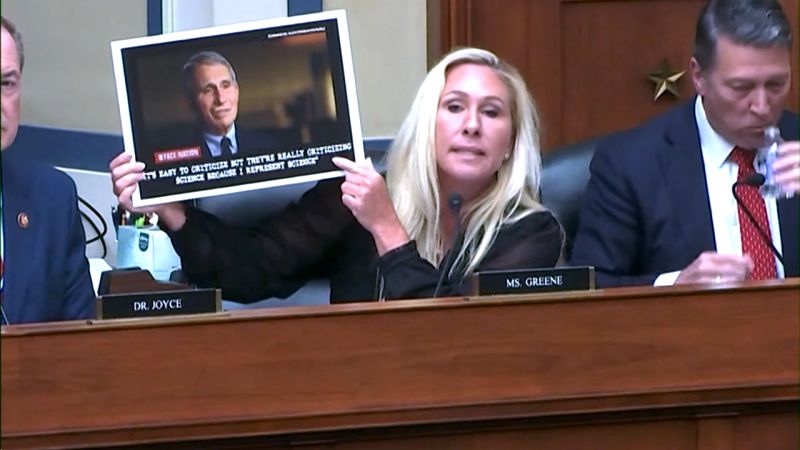During the House subcommittee hearing on the US’s Covid-19 pandemic response, Dr. Anthony Fauci, the former director of the National Institute of Allergy and Infectious Diseases, addressed comments made by GOP Rep. Marjorie Taylor Greene. Fauci stated that comments like those made by Greene are the reason he continues to receive death threats. This highlights the divisive nature of the political rhetoric surrounding the pandemic and the impact it has on public health officials like Fauci.
Greene’s comments during the hearing focused on questioning the origins of the virus and criticizing Fauci’s role in the pandemic response. She has been known for spreading misinformation about Covid-19 and vaccines, which has further fueled conspiracy theories and distrust in public health measures. Fauci’s response signals the frustration and challenges faced by experts in the field who are trying to navigate through a sea of misinformation and political posturing to effectively manage the crisis.
The politicization of the Covid-19 pandemic has been a recurring theme throughout the United States, with conflicting messages from political leaders and public health officials contributing to confusion and resistance to necessary measures. Greene’s comments reflect the broader trend of conspiracy theories and misinformation spreading on social media and among certain political circles. This poses a serious threat to public health efforts and undermines the trust in scientific expertise.
Fauci’s statement sheds light on the personal toll that the pandemic response has taken on him and other public health officials who have been at the forefront of the crisis. The constant threats and attacks faced by Fauci demonstrate the level of animosity and polarization that has permeated discussions around the pandemic. This further complicates efforts to effectively combat the virus and ensure the safety and well-being of the population.
Moving forward, it is crucial for leaders and influencers to prioritize factual information and evidence-based approaches in their communications about the pandemic. This is essential for rebuilding trust in public health institutions and ensuring that the public is equipped with accurate information to make informed decisions about their health. By addressing misinformation and conspiracy theories head-on, it may be possible to mitigate the harmful effects of divisive rhetoric and work towards a more unified response to the ongoing crisis.
In conclusion, Dr. Fauci’s response to comments made by Marjorie Taylor Greene during the House subcommittee hearing underscores the challenges faced by public health officials in navigating through a landscape of misinformation and political polarization. The impact of divisive rhetoric on the pandemic response cannot be understated, as it undermines public trust and hampers efforts to effectively manage the crisis. Moving forward, it is imperative for leaders to prioritize evidence-based approaches and combat misinformation in order to ensure the safety and well-being of the population.


